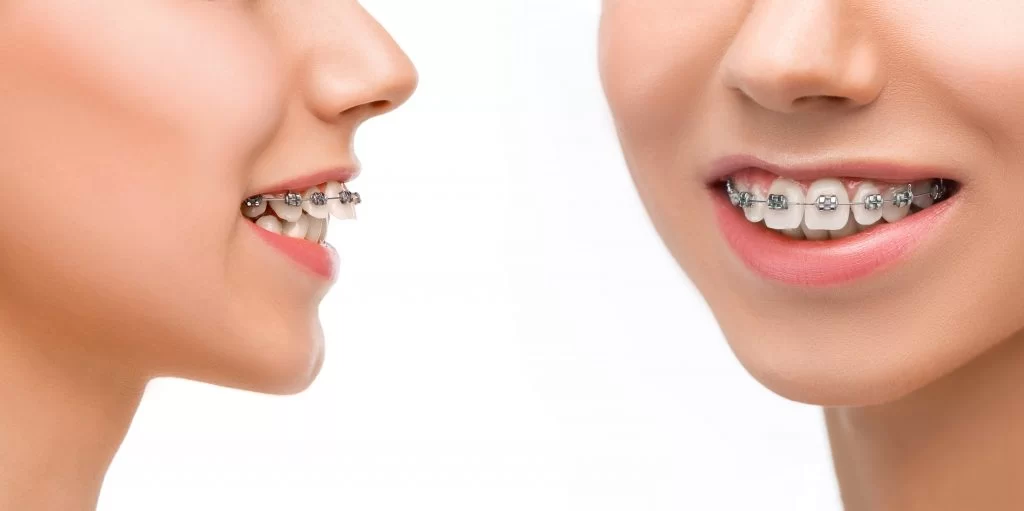
Braces for Over-Crowded Teeth: Effective Solutions for a Perfect Smile
- 1. Understanding Over-Crowded Teeth
- 2. Causes of Over-Crowded Teeth
- 3. Symptoms of Over-Crowded Teeth
- 4. How Braces Help Over-Crowded Teeth
- 5. Types of Braces for Over-Crowded Teeth
- 6. Steps Involved in Getting Braces
- 7. Maintaining Results After Braces
- 8. Conclusion and Buying Guide
1. Understanding Over-Crowded Teeth
Over-crowded teeth are a dental condition where there isn't enough space in the mouth to accommodate all the teeth. This results in teeth overlapping, misaligning, and causing discomfort. It can happen in both children and adults, affecting both the appearance and functionality of one's smile. Over-crowded teeth can lead to difficulty in cleaning, which increases the risk of decay and gum disease.
2. Causes of Over-Crowded Teeth
Over-crowded teeth can be caused by several factors, including genetics, early loss of baby teeth, thumb sucking, or poor oral habits. In some cases, a smaller jaw size or the eruption of teeth out of order can also contribute to the problem. Understanding the causes is essential for effective treatment and prevention.
3. Symptoms of Over-Crowded Teeth
Some common symptoms of over-crowded teeth include visibly misaligned teeth, difficulty in cleaning between teeth, and discomfort or pain in the gums. People with crowded teeth may also experience an increased risk of cavities or gum disease due to inadequate cleaning. If you notice these symptoms, it is important to visit a dentist or orthodontist to assess the condition and consider potential treatment options.
4. How Braces Help Over-Crowded Teeth
Braces are the most common solution for correcting over-crowded teeth. They gradually move the teeth into better alignment by applying controlled pressure over time. Braces work by creating space between teeth, allowing them to straighten and fit properly within the mouth. This not only improves the appearance but also enhances oral hygiene and reduces the risk of future dental issues.
5. Types of Braces for Over-Crowded Teeth
There are several types of braces to choose from, depending on your preferences and the severity of the overcrowding. Traditional metal braces are the most common and effective option, but ceramic braces, which blend more naturally with the teeth, are another alternative. Invisalign, a series of clear aligners, offers a more discreet treatment for those who are concerned about the appearance of braces.
6. Steps Involved in Getting Braces
The process of getting braces typically begins with a consultation with an orthodontist. After a thorough examination, the orthodontist will develop a personalized treatment plan. The next step involves applying the braces to the teeth, which can take a couple of hours. Regular check-ups are required to adjust the braces and monitor progress. The overall treatment duration can range from several months to a few years, depending on the severity of the overcrowding.
7. Maintaining Results After Braces
Once braces are removed, it's essential to maintain the results by wearing a retainer as prescribed by the orthodontist. A retainer helps to prevent the teeth from shifting back to their original position. Good oral hygiene practices, such as brushing, flossing, and regular dental visits, will also help ensure the long-term success of your treatment.
8. Conclusion and Buying Guide
Braces are a highly effective solution for individuals struggling with over-crowded teeth. They not only improve the alignment of your teeth but also contribute to better oral health in the long run. If you're considering braces, it's essential to consult with a qualified orthodontist to explore the best options available for your specific needs. For more information on braces and dental products, visit Dentistry Toothtruth for expert recommendations and guidance.







 William Farmer, DDS5.0 (5 review)
William Farmer, DDS5.0 (5 review) SimpliSmiles Farmingdale4.0 (386 review)
SimpliSmiles Farmingdale4.0 (386 review) Dr. Hecklin: Family & Cosmetic Dentistry5.0 (316 review)
Dr. Hecklin: Family & Cosmetic Dentistry5.0 (316 review) River Hills Dentistry4.0 (216 review)
River Hills Dentistry4.0 (216 review) Zakhor Dental Group4.0 (146 review)
Zakhor Dental Group4.0 (146 review) Dental Analysis Family Dentistry4.0 (92 review)
Dental Analysis Family Dentistry4.0 (92 review) The Importance of Oral Health Education During Pregnancy for a Healthy Pregnancy
The Importance of Oral Health Education During Pregnancy for a Healthy Pregnancy Best Tips for Brushing Your Teeth Properly for Healthy Gums: Essential Techniques for Oral Health
Best Tips for Brushing Your Teeth Properly for Healthy Gums: Essential Techniques for Oral Health Why Skipping Dental Checkups Can Lead to Bigger Oral Health Problems
Why Skipping Dental Checkups Can Lead to Bigger Oral Health Problems Advantages of Porcelain Dental Restorations
Advantages of Porcelain Dental Restorations How Can Diabetes Cause Tooth and Gum Problems? Preventing and Managing Oral Health Issues
How Can Diabetes Cause Tooth and Gum Problems? Preventing and Managing Oral Health Issues Healthy Habits for Promoting Good Oral Health and Hygiene: Tips for a Healthy Smile
Healthy Habits for Promoting Good Oral Health and Hygiene: Tips for a Healthy Smile